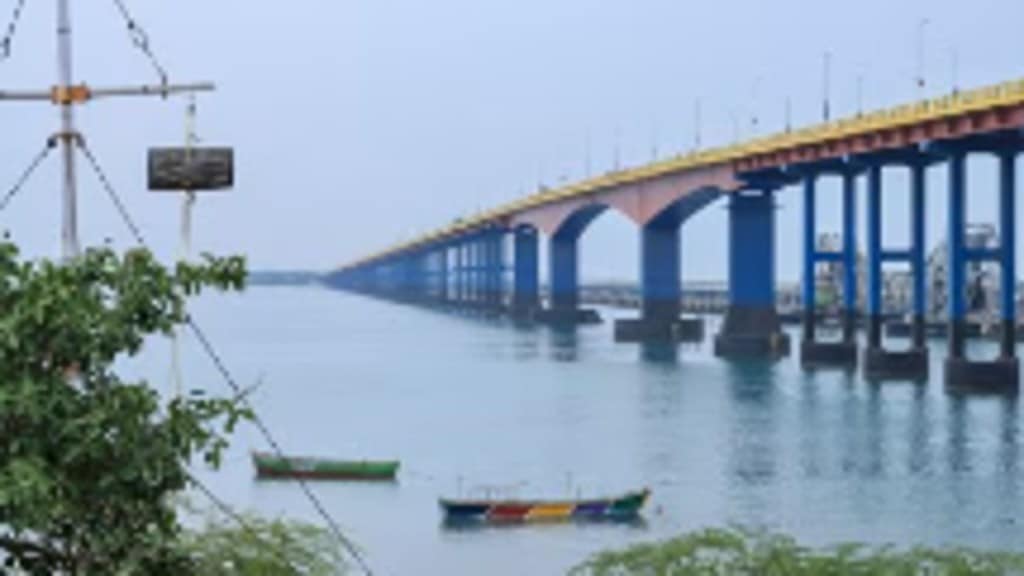By Constantino Xavier,
The sixth summit of the Bay of Bengal Initiative for Multi-Sectoral Technical and Economic Cooperation (Bimstec) planned in Bangkok earlier this month was, once again, postponed. The organisation now risks losing pace after its seven member-states agreed on a 2030 plan for a prosperous, resilient, and open Bay of Bengal. That vision of economic integration, bridging South Asia and Southeast Asia, is now endangered by a wave of political instability, internal conflicts, and security challenges.
Except for India and Bhutan, all other member-states have been torn by political turbulence, from Nepal’s 10 prime ministers in as many years to the violent cataclysm in Bangladesh. Myanmar remains engulfed in a spiralling civil war, and Sri Lanka’s political turmoil is far from over as the island recovers from a financial collapse.
Beyond unstable politics and fragile economies, the Bay of Bengal region also faces a growing number of non-traditional security challenges. These are weakening state institutions and increasing the risk of internal, bilateral, and regional conflicts. Climate change is disrupting livelihoods and displacing millions of people. Close to half a billion people are now deemed to be food-insecure, affected by sudden weather changes, depleting fish stocks, and devastating cyclones. From health to energy, policymakers are struggling to deliver development solutions to a growing number of impatient, underemployed youth.
Bimstec offers one possible solution to collectively address these challenges. Going beyond its original technical, trade, and economic focus, the organisation has begun to develop an important security track since 2016, when its leaders called for more cooperation among “law enforcement, intelligence, and security organisations” at their retreat in Goa. Progress has been significant since then.
In 2017, the first National Security Chiefs’ (NSC) meeting referred to the Bay of Bengal as a “common security space”. It has met three more times since then, most recently in Myanmar in July. There have been three editions of a track 1.5 Security Dialogue and two editions of the Think Tanks Dialogue on Regional Security. New areas of security cooperation now include the maritime and cyber domains. Three Bimstec disaster management exercises have been held, as well as one military field training exercise, hosted by the Indian Army. And in 2022 security cooperation was formalised as one of Bimstec’s seven new priority sectors.
The slow but steady securitisation of Bimstec brings with it new challenges as the organisation seeks to find new relevance. Five issues stand out, requiring attention from member-states.
First, it is important to continue expanding the scope of “security” to new domains. Sub-sectors under security include disaster management and energy, as well as a separate sector on agriculture and food security. Health offers another opportunity, especially after Bimstec was found missing in action during the 2020-21 pandemic. Moving beyond energy from a resource perspective, there is also a scope for cooperation on climate security. A wider range of humanitarian assistance and disaster relief exercises will help to build institutional capacity in the secretariat for future emergencies.
Second, security cooperation needs to be sustained with more frequent meetings. The expert group on space security and the home ministers’ meeting have not been held even once. And the NSC meeting saw a long hiatus between 2019 and 2024. Meeting regularly helps exchange perspectives through informal consultations and set an agenda that is both ambitious but feasible, especially on sensitive issues including cross-border conflicts or regional security matters where China’s shadow always looms large.
Third, consistency is also necessary when it comes to finalising agreements. For instance, the Bimstec Convention on Cooperation in Combating International Terrorism, Transnational Organised Crime and Illicit Drug Trafficking was signed in 2009, but only came into force in 2021. The draft conventions on the transfer of sentenced persons and on extradition have both faced significant delays.
Fourth, member-states will also have to harmonise the different organisational entry points. Some variation is expected, but the NSC meetings reflect how member-states have differing perspectives on security cooperation. While India has consistently been represented by its national security advisor, Sri Lanka sent its director of military intelligence in 2017 and 2018, Nepal its inspector general of police in 2019, and Bhutan its secretary of the ministry of home affairs.
Finally, while India has served as the lead country for the security sector, it will have to tread with caution and deal with multiple sensitivities. Some smaller member-states are wary of the big neighbour or coming under pressure from political constituencies at home, or from China abroad, to engage in security cooperation with India.
More than ever before, the Bay of Bengal’s road to economic interdependence and prosperity hinges on political stability and regional security. Bimstec’s experiment with security cooperation holds promise but is still a work in progress. Any further delays on holding the sixth summit in Bangkok risk diminishing Bimstec’s relevance.
Co-authored with Dhruv Banerjee, former intern at CSEP, New Delhi
Constantino Xavier is a senior fellow at the Centre for Social and Economic Progress (CSEP), New Delhi.
Disclaimer: Views expressed are personal and do not reflect the official position or policy of Financial Express Online. Reproducing this content without permission is prohibited.

